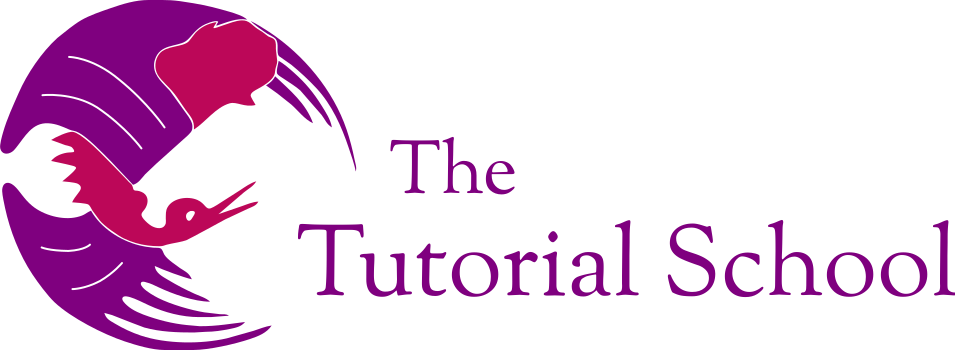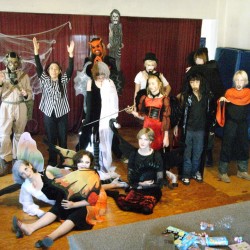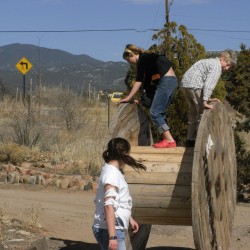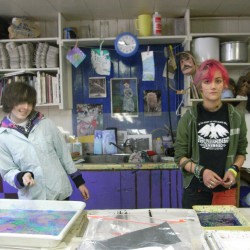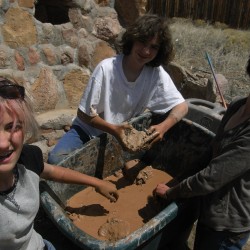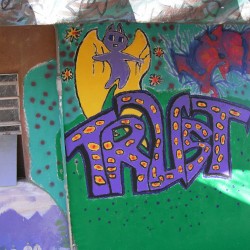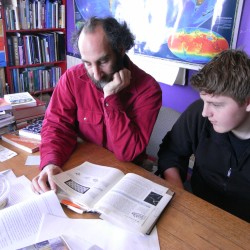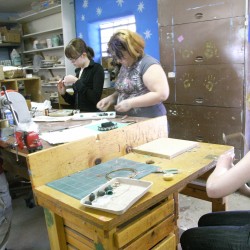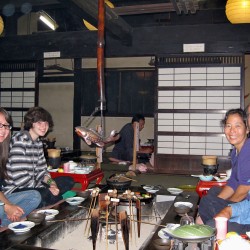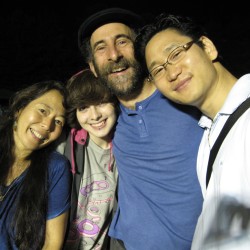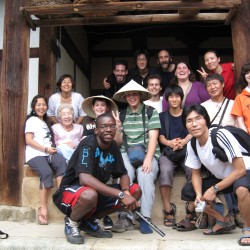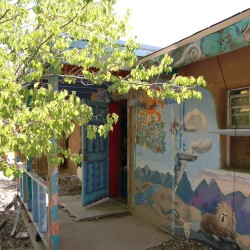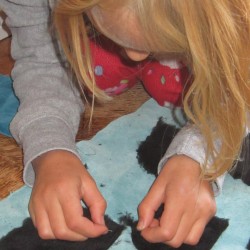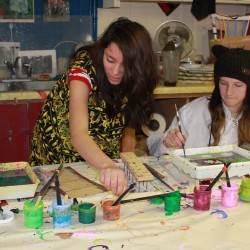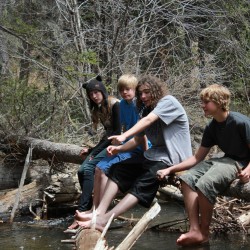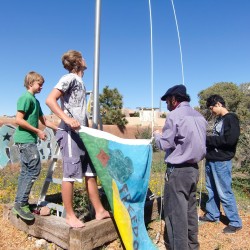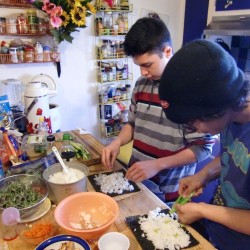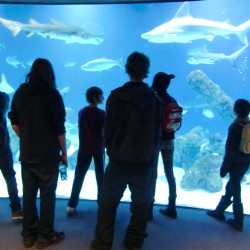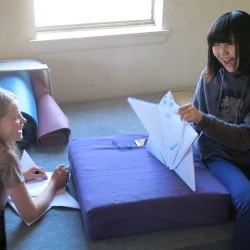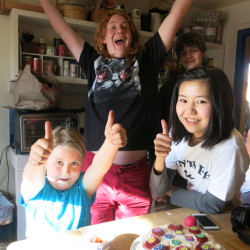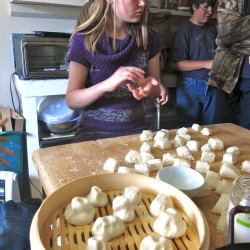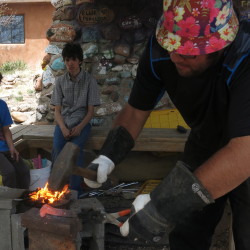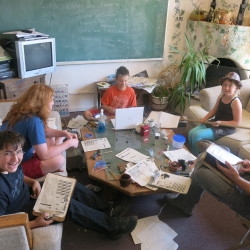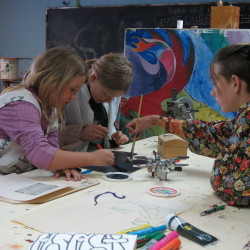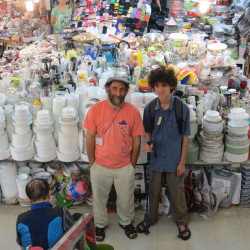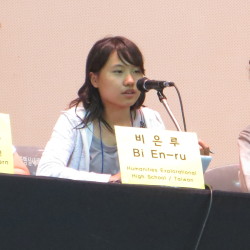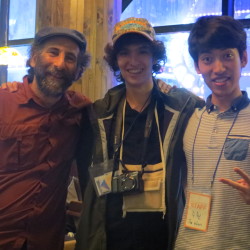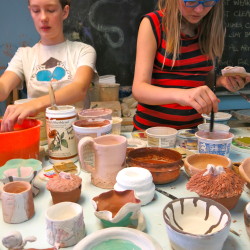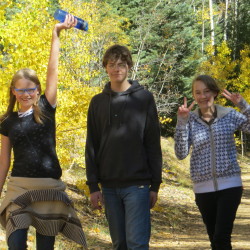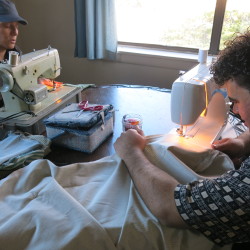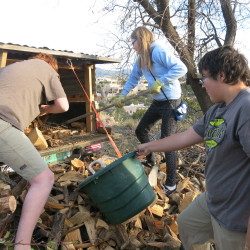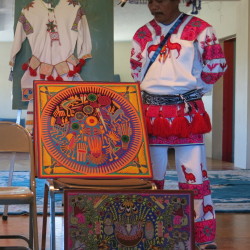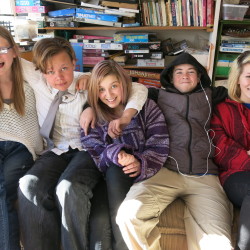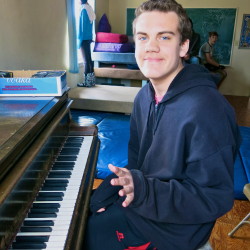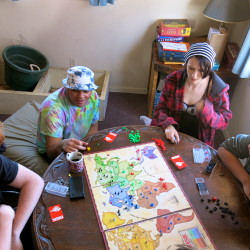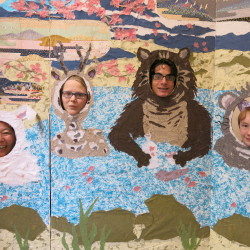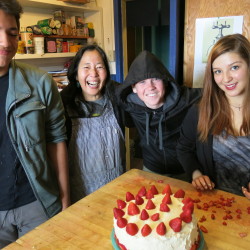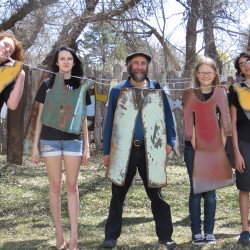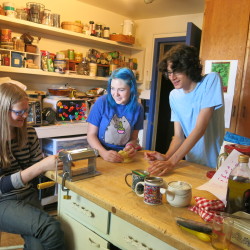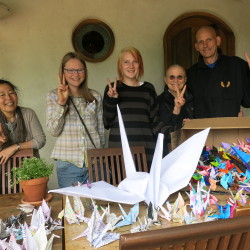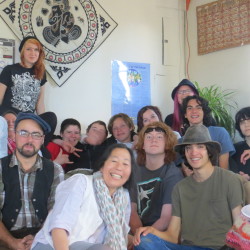General Description
The Tutorial School provides its students with a flexible learning experience based on tolerance and sound relationships within a caring, nurturing environment. Students are free to select the subjects they wish to study. There is absolute respect for the student’s right to be one’s self. The school is run cooperatively by faculty members and students.
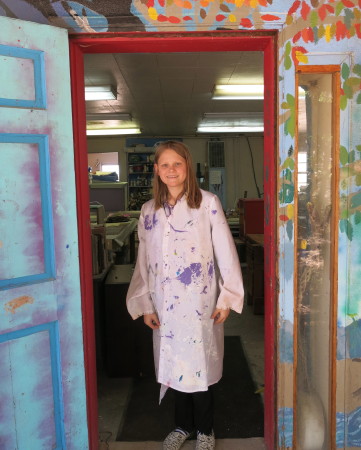 We affirm that a student, no matter how young, has the same right to respect and consideration as any adult. Students learn to take charge of their lives and their education. They have flexibility in the management of their time—for classes, reading, art, daydreaming, or socializing. Students may also hold jobs, pursue an apprenticeship, or enroll in college classes. When young people have flexibility in their education, they can better explore and discover themselves, their world, and what it is they truly love to do. The school fosters self-discovery and a joy of learning.
We affirm that a student, no matter how young, has the same right to respect and consideration as any adult. Students learn to take charge of their lives and their education. They have flexibility in the management of their time—for classes, reading, art, daydreaming, or socializing. Students may also hold jobs, pursue an apprenticeship, or enroll in college classes. When young people have flexibility in their education, they can better explore and discover themselves, their world, and what it is they truly love to do. The school fosters self-discovery and a joy of learning.
Perhaps the most important dimension of the school’s culture and philosophy is the concept of practice—the creative pursuit of competency. At The Tutorial School, students are free to practice autonomy, responsibility, and freedom without any concern for failure or judgment. It is our fervent belief that only through the practice of these essential human qualities can a child become a well-rounded adult.
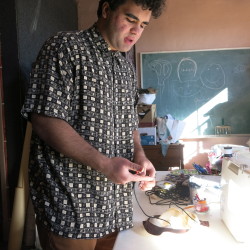
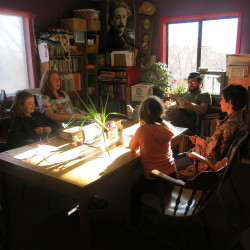

College
Our students go to college.
- Almost all of our graduates have some post-secondary education—much higher than the national average.
- Our students do very well at college because they are prepared: they have achieved cognitive maturity, motivation to learn, and have practiced autonomy for years.
- The Tutorial School offers individual college counseling and support. Our faculty is closely involved in every step of the college preparation process.
- Most colleges do not require the GED. Our diploma is sufficient.
- Colleges now have a wider range of acceptance policies. Many colleges prefer our students because they make better learners—they are motivated to learn.
- Many older students take classes at the Santa Fe Community College while attending The Tutorial School. This is a very good way to get accustomed to college learning, plus our facility is available for tutoring and support.
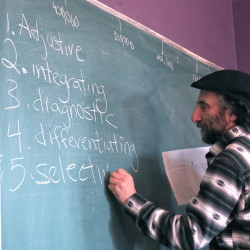
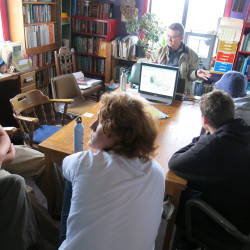
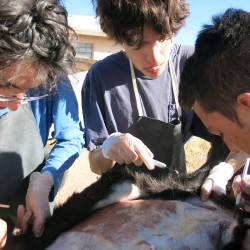
Frequently Asked Questions
How will my child benefit from attending The Tutorial School?
- Your relationship with your child will improve.
- Your child will be happy.
- Your child will become a life-long learner.
- Your child will have a good life.
Great philosophy, but what does it look like?
Happy children talking with each other and the faculty. A bustling art room filled with music and activity. Students working quietly on a writing project. A lively discussion on Opponent Pair Processing in Neuroscience. A jam session—the instruments and cases stacked amongst a plethora of sewing materials. An intensive rehearsal for a theatre production. Mouth-watering smells, as the kitchen class prepares lunch.
No, I mean, what is a typical day like?
Every day is different and everyone’s day is different. Students arrive based on their own individual schedule, much like college. Events and classes are scheduled but there is also a flow and spontaneity. You never know what will happen or who will visit.
But how can they learn?
Learning is the constant experience of human beings—we are always learning. Maria Montessori pointed our that we learn to speak our native tongue by ourselves without any instruction or formal classes. How amazing is that? When a person is motivated to learn something, he or she learns very quickly.
Yeah, but what do they learn?
At The Tutorial School, students learn many valuable things in addition to the subject they pursue:
They learn to speak for themselves. They learn to talk with adults calmly, effectively, and without fear. They learn to defend and challenge points of view. They learn how to organize themselves and others. They learn how to lead a group and help make group decisions. They learn to share power. They learn consensus decision-making. They about themselves: what their passions are, what their issues are, how they learn best. They learn respect, responsibility, and how to manage freedom.
Well, what about the standard curriculum?
We offer all academic subjects in addition to a wide variety of arts and life skills. The faculty at The Tutorial School support the students to study any subject as deeply as they wish. The standard curriculum is available and based on a genuine desire to learn. Once this is established, learning academics goes very quickly.
Do your students go to college?
Every single graduate, who wanted to go to college, did go, and almost always to the college of their choice.
Which colleges did they go to?
Here’s a partial list:
Antioch College, Art Institute of California, Colorado State University, Columbia University in New York City, Emerson College, Evergreen State College, Hunter College, Lewis and Clark, Middlebury College, Naropa University, New School, New York University (NYU)—the student graduated with honors, Pitzer College, Portland State University, Prescott College, Pratt Institute, Rochester Institute of Technology (PhD candidate in Quantum Optics), St. John’s College (student graduate top in her class), School of the Museum of Fine Arts, United World College, University of Arizona (student graduated top in her class), University of Colorado in Boulder, University of London (England), University of New Mexico, University of North Carolina, University of Western Australia, University of New Mexico School of Medicine.
That’s impressive, but how well do they do at college?
Our students do very well at college. By the end of their college career, they are typically the top student of their class. This is because they are more mature, more self-confident, and more motivated to learn than their peers. Often they have to take care of their classmates the first year. They become “dorm counselors,” teaching them how to manage their newfound freedom. Our students are in college because they want to learn.
Oh, who are your students?
It varies from year to year. Typically they are eight years old to eighteen, from all socioeconomic backgrounds. The Tutorial School has a flexible tuition fee structure. We have had learners with difficulties and brilliant academic stars, homeschoolers, unschoolers, model compliant students, and students who have been kicked out of every school in town. They all learn to get along with each other, support each other, and make decisions cooperatively.
Do only self-motivated students do well at your school?
Not true! Almost all students, when they enter the school, are lacking in self-motivation and discipline. These are things that they learn here, and they learn them very well if they complete our program and the parents support them. Responsibility and self-direction are learned through practice.
How can parents support their children?
Parents can support their children best by letting them know they have confidence in them to be able to run their own lives and to learn to make good decisions. It takes practice for the parents to learn to trust their children, but it is the only way children will become trustworthy.
How will they learn to make good decisions?
It takes practice. People learn best from having direct experience of the results of their actions and the confidence to know they can do better. The Tutorial School is a safe palce to make mistakes and learn from them. Here, students get plenty of opportunities to make decisions and calmly discuss the results. There is also a code of conduct called “Agreements” created by students and faculty that is a prerequisite to admittance to the school.
How are decisions made?
Once a week, the All School Council, composed of students and faculty, meets to share information and make decisions related to the running of the school. A modified version of Formal Consensus Process is used. Power, at this school, comes from learning to speak effectively and work cooperatively.
So what about bullying?
Bullying is an abuse of power. Fortunately, bullying is rarely an issue at our school because we have created a culture of kindness and caring. When conflict does arise, it is dealt with through restorative justice.
What is restorative justice?
It is a way to restore balance to our community through focusing on the needs of the victims and offenders, as well as the involved community. The resolution of conflict becomes a learning experience for everyone.
So this is really a different school?
Yes, we really put our ideals into practice.
